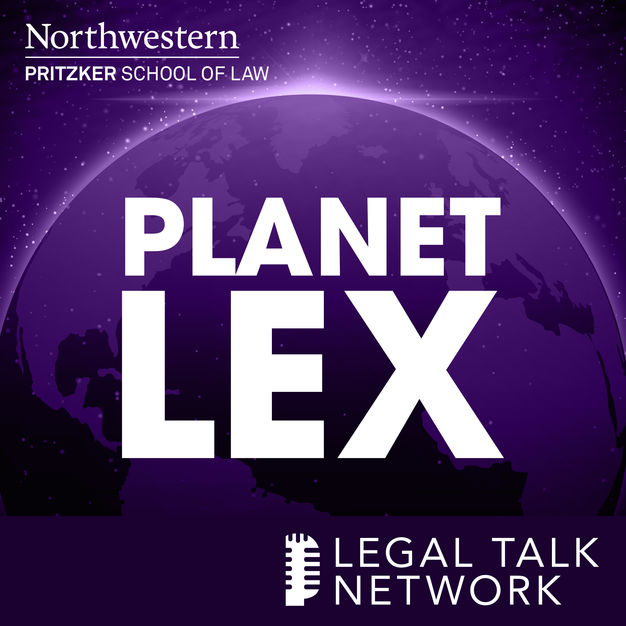
Planet Lex: The Northwestern Pritzker School of Law Podcast
Planet Lex is a series of conversations about the law, law and society, law and technology, and the future of legal education and practice. In other words, a bunch of interesting stuff about the law.
- 32 minutes 37 secondsA New Digital Infrastructure
The COVID pandemic precipitated a massive shift in digital infrastructure. Annelise Riles, the Executive Director of the Roberta Buffett Institute for Global Studies at Northwestern University, outlines her vision for the United States' role in global engagement, the future of transnational education, and addresses the growing skepticism of the costs of removing the human element.
21 April 2021, 5:00 am - 32 minutes 44 secondsA Safe, Fair, and Dignified Workplace
Nearly 35 years after Meritor Savings Bank v. Vinson made sexual harassment unlawful, the EEOC reports that 85% of women have experienced sexual harassment at some point in their career. Tina Tchen, former chief of staff to Michelle Obama and president and CEO of Time’s Up Now and the Time’s Up Foundation, discusses how the law can actually impede progress in critical areas of workplace discrimination, and how businesses and government can more effectively move the needle.
17 March 2021, 5:00 am - 36 minutes 59 secondsCOVID-19's Impact on the 2020 Election
The 2020 presidential election has already seen unprecedented changes to the process by which votes are cast, tallied, and reported, and, as a result, the U.S. has seen an increased amount of litigation surrounding the election. Michael Kang, the William G. and Virginia K. Karnes Research Professor at Northwestern Pritzker School of Law, is a nationally recognized election law expert. He discusses COVID-19’s looming impact on the upcoming presidential election, the range of election-related litigation already in courts, and whether he thinks America will know election results on November 3.
27 October 2020, 5:00 am - 37 minutes 27 secondsNew Light on the History of Commercial Fraud
Emily Kadens, legal historian with a particular focus on medieval and early modern history of commercial law and practice, shares her research on the origins of commercial fraud in England and dispels the myth of a golden age of commerce.
Fraud is not a modern problem. In this episode of Northwestern Law’s Planet Lex, host Jim Speta is joined by Emily Kadens, Professor of Law, to discuss her new article New Light on Twyne’s Case, one of the oldest English cases still being cited by American courts. Through first-hand research and unprecedented access to Common Pleas writ rolls, she unearths some fascinating details about the complicated history of commercial fraud.
19 August 2020, 5:00 am - 34 minutes 7 secondsAnti-Discrimination Laws v. Religious Freedom
The United States has a long history of religious accommodation. But is it possible to exempt those who object to an anti-discrimination law without defeating the purpose of that law? Planet Lex host Jim Speta is joined in this episode by Andrew Koppelman, John Paul Stevens Professor of Law and author of Gay Rights Versus Religious Liberty: The Unnecessary Conflict, to discuss the intersection of religious freedom and anti-discrimination laws, the recent Supreme Court decision in Bostock v Clayton County, and the road forward in a free society where people radically disagree.
15 July 2020, 4:00 am - 31 minutes 37 secondsJuvenile Justice Amid the Coronavirus Pandemic
A criminal record can be an economic life sentence for those attempting to re-enter society. The cost of one year of incarceration of a child exceeds that of a four-year university. Juvenile justice is one of many areas of the law struggling to adapt to COVID-19. In this episode of Planet Lex, host Jim Speta discusses the pandemic’s impact on incarceration with Julie L. Biehl, Clinical Professor of Law, who has served as Director of the Children and Family Justice Center since 2009. She outlines the Center's efforts to release juveniles from prison and speaks about her vision for the future of juvenile justice.
17 June 2020, 4:00 am - 44 minutes 19 secondsLaw in the Time of Coronavirus
In the midst of a global pandemic, federal and state governments are tasked with addressing a public health emergency while steadfastly protecting civil liberties. In this episode of Planet Lex, host Vice Dean Jim Speta is joined by Daniel B. Rodriguez, Harold Washington Professor and former dean of Northwestern Law, to discuss the myriad (and ever-evolving) legal issues surrounding COVID-19. Rodriguez also discusses the “pop-up” course he created in order to teach the topic in real-time, and looks at the long-term ramifications that technology-enabled courts will have on the legal system.
20 May 2020, 3:48 pm - 43 minutes 15 secondsLeading Edge of Legal: How In-House Attorneys Navigate Issues in High Profile Startups
In this special live recording of Planet Lex at Northwestern’s San Francisco campus, host Jim Speta talks with Myra Pasek, general counsel at Ouster, and Pete Cline, associate director of legal at Twitter, about their experiences working in-house at start-ups and high-profile tech companies, including Tesla, Impossible Foods, Ouster, and Twitter. The guests share their unique paths from big law to Silicon Valley and offer insights on the cutting-edge legal issues and challenges that arise in tech and entrepreneurial ventures
17 March 2020, 5:49 pm - 36 minutes 32 secondsSolitary Confinement: Calling for Change in American Prisons
Incarceration is the primary form of criminal punishment in the US today, and approximately 80,000 American prisoners are in some form of solitary confinement. What exactly does this look like in our prison system, and what are the effects of solitary confinement on individuals? Does this type of treatment violate prisoners’ constitutional rights? In this edition of Planet Lex, host Jim Speta talks with David Shapiro and Daniel Greenfield, members of the Roderick and Solange MacArthur Justice Center at Northwestern’s Bluhm Legal Clinic, about their research and efforts to end prolonged solitary confinement in American prisons.
David M. Shapiro is the director of the Supreme Court and Appellate Program of the Roderick and Solange MacArthur Justice Center.
Daniel M. Greenfield joined the MacArthur Justice Center as the Solitary Confinement Appellate Litigation Fellow in March 2017.
18 December 2019, 9:07 pm - 32 minutes 55 secondsInnovation & Trends in Intellectual Property & Patent Law
Northwestern Law’s intellectual property and patent law scholars are truly leaders in their field. In this edition of Planet Lex, host Jim Speta welcomes Laura Pedraza-Fariña and David Schwartz to discuss the study of innovation and the law in an era of rapid technological change. The guests share their individual paths to intellectual property and patent law and offer insights on how patents affect innovation. They also discuss their current research projects and outline the unique advantages of pursuing their scholarship with an interdisciplinary team.
Laura Pedraza-Fariña is an assistant professor of law and a faculty affiliate of the science in human culture program at Northwestern University.
David Schwartz is a professor of law and associate dean of research and intellectual life at Northwestern Pritzker School of Law.
13 November 2019, 10:59 pm - 33 minutes 54 secondsThe Bluhm Legal Clinic: Celebrating 50 Years of Clinical Legal Education
As Northwestern Pritzker School of Law’s Bluhm Legal Clinic approaches its 50th anniversary, Planet Lex host Vice Dean Jim Speta talks with Thomas Geraghty, the Clinic’s director from 1976-2017, about the clinic’s beginnings and how it evolved into what it is today. Geraghty shares how engaging students directly in the practice of law provides vital training and makes legal education more meaningful. They also discuss Geraghty’s work bringing clinical education to law schools around the world and the new innovations coming to this area of legal education.
18 September 2019, 8:05 pm - More Episodes? Get the App
Your feedback is valuable to us. Should you encounter any bugs, glitches, lack of functionality or other problems, please email us on [email protected] or join Moon.FM Telegram Group where you can talk directly to the dev team who are happy to answer any queries.
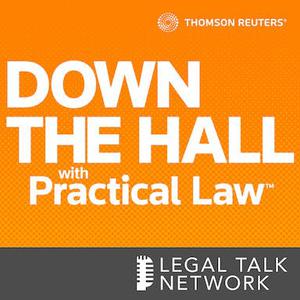 Thomson Reuters: Down the Hall with Practical Law
Thomson Reuters: Down the Hall with Practical Law
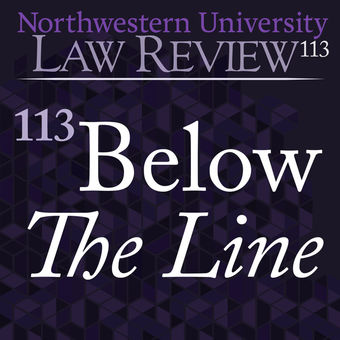 Below the Line
Below the Line
 Legal TIPS
Legal TIPS
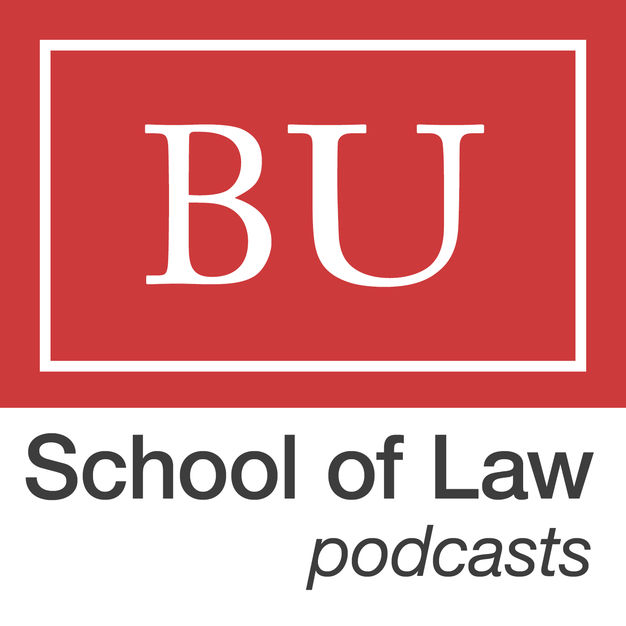 Boston University School of Law
Boston University School of Law
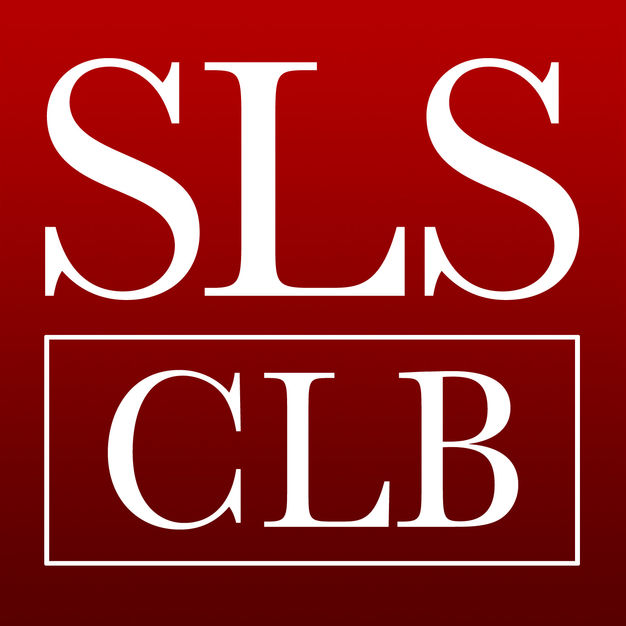 Stanford Center for Law and the Biosciences Podcast Series
Stanford Center for Law and the Biosciences Podcast Series
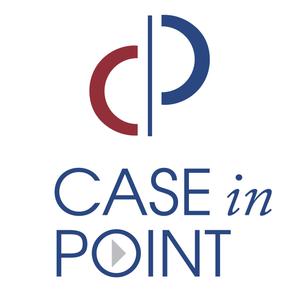 Case in Point
Case in Point